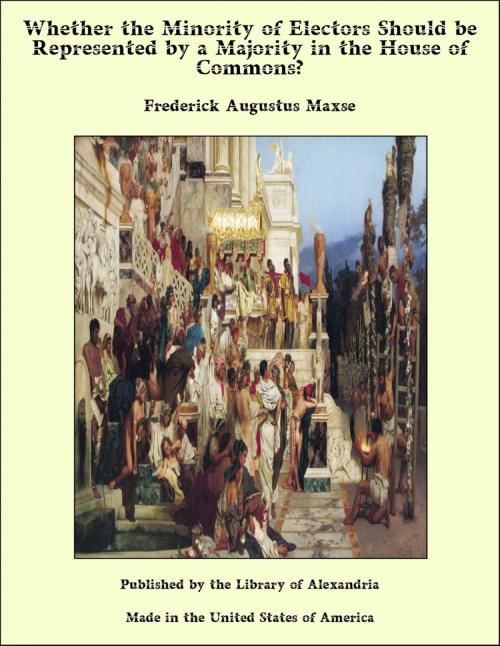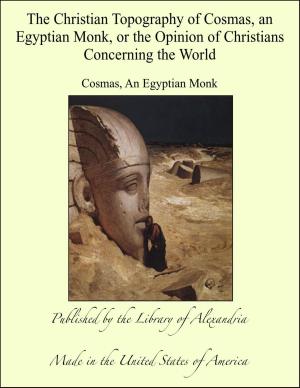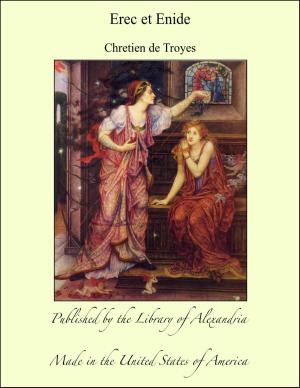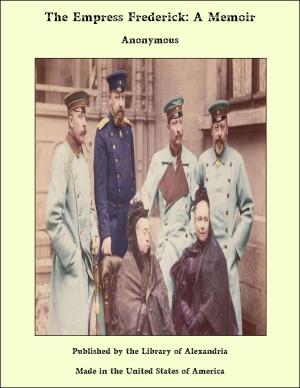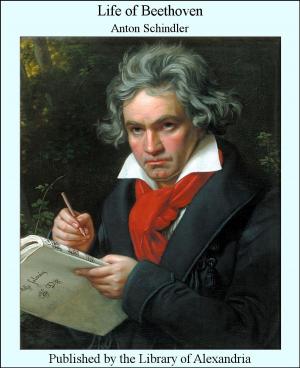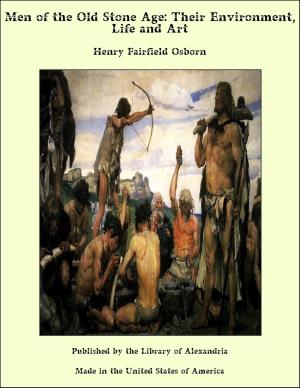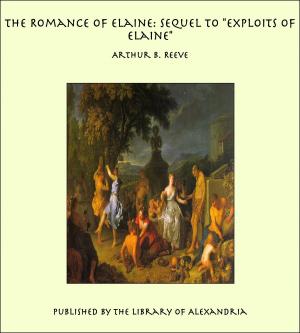Whether the Minority of Electors Should be Represented by a Majority in the House of Commons?
Nonfiction, Religion & Spirituality, New Age, History, Fiction & Literature| Author: | Frederick Augustus Maxse | ISBN: | 9781465595324 |
| Publisher: | Library of Alexandria | Publication: | March 8, 2015 |
| Imprint: | Language: | English |
| Author: | Frederick Augustus Maxse |
| ISBN: | 9781465595324 |
| Publisher: | Library of Alexandria |
| Publication: | March 8, 2015 |
| Imprint: | |
| Language: | English |
The subject I have come to address you upon is that of Electoral Reform. I will endeavour to place myself in sympathy with you, by frankly explaining why I am interested myself, and am so anxious to interest you, in this question of Electoral Reform. It is because I believe that in dealing with it I go to one of the root causes of much of our social misery. It is my fate not to be content with the gaudy superficial side of our civilization. I cannot with any satisfaction confine m3rself to gazing on the façade of our social fabric, or luxuriate tranquilly in its front apartments: my mind always travels inevitably to the rear of the superstructure, and surveys the immense area of dilapidated buildings where the human race may be said to be, whose life represents one long struggle for the mere means of existence. Now, though I speak of fate, I am not a Fatalist; and I would warn you against the spirit of fatalism which is now, under the doctrine of Natural Development, creeping over the whole face of society. Every wise man must perceive the inexorable limits which arise from natural conditions—but he will not admit the inexorable character of artificial conditions which are imposed by the selfishness or by the error of man. My labour as a politician is directed towards what seem to me to be the preventible causes of human suffering. If there are in this country during a single year no less than 5,000,000 people who are, at some time in it, either paupers or alms receivers, that terrible fact is largely due in my opinion to artificial conditions and circumstances, which result from human institutions and which come within the province of the legislature to improve or remove. The leaders of the two factions. Whig and Tory, who govern the country by means of political power, are constantly at pains to convince working men that there is no value in political power; and certainly, observing the obstacles they place in the way of working men possessing political power, there is every reason to believe that they are perfectly sincere. They value political power themselves too much to concede it to others. I wish to impress on you the value of political power. Political power affords the means of improving bad circumstances, which create poverty, and which are nevertheless wilfully preserved by politicians who only represent those, who are in good circumstances.
The subject I have come to address you upon is that of Electoral Reform. I will endeavour to place myself in sympathy with you, by frankly explaining why I am interested myself, and am so anxious to interest you, in this question of Electoral Reform. It is because I believe that in dealing with it I go to one of the root causes of much of our social misery. It is my fate not to be content with the gaudy superficial side of our civilization. I cannot with any satisfaction confine m3rself to gazing on the façade of our social fabric, or luxuriate tranquilly in its front apartments: my mind always travels inevitably to the rear of the superstructure, and surveys the immense area of dilapidated buildings where the human race may be said to be, whose life represents one long struggle for the mere means of existence. Now, though I speak of fate, I am not a Fatalist; and I would warn you against the spirit of fatalism which is now, under the doctrine of Natural Development, creeping over the whole face of society. Every wise man must perceive the inexorable limits which arise from natural conditions—but he will not admit the inexorable character of artificial conditions which are imposed by the selfishness or by the error of man. My labour as a politician is directed towards what seem to me to be the preventible causes of human suffering. If there are in this country during a single year no less than 5,000,000 people who are, at some time in it, either paupers or alms receivers, that terrible fact is largely due in my opinion to artificial conditions and circumstances, which result from human institutions and which come within the province of the legislature to improve or remove. The leaders of the two factions. Whig and Tory, who govern the country by means of political power, are constantly at pains to convince working men that there is no value in political power; and certainly, observing the obstacles they place in the way of working men possessing political power, there is every reason to believe that they are perfectly sincere. They value political power themselves too much to concede it to others. I wish to impress on you the value of political power. Political power affords the means of improving bad circumstances, which create poverty, and which are nevertheless wilfully preserved by politicians who only represent those, who are in good circumstances.
